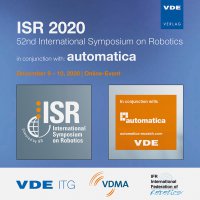Machine learning approaches for offline-programming optimization in robotic painting
Conference: ISR 2020 - 52th International Symposium on Robotics
12/09/2020 - 12/10/2020 at online
Proceedings: ISR 2020
Pages: 7Language: englishTyp: PDF
Authors:
Diaz Posada, Julian R.; Meissner, Alexander (Dürr Systems AG, Bietigheim-Bissingen, Germany)
Hentz, Gauthier (Fraunhofer Institute for Manufacturing Engineering and Automation, Stuttgart, Germany)
D’Agostino, Nikolai (CENIT AG, Stuttgart, Germany)
Abstract:
Automatic robot programming is a major challenge to enable the cost-effective usage of robots for the production of small lot sizes and changing variants in painting applications. Offline-Programming (OLP) can be used to generate robot programs in a virtual environment and speed up the programming process with supportive functionalities. However, much human input is still needed to optimize robot programs for a specific painting task. The human operator uses his cognitive skills and experience based on process-specific rules to adapt the programming within the OLP system. The programming approach is an iterative process where the painting quality resulting from an initial robotic program is assessed in a laboratory, and then the program is adapted in the OLP system. It is difficult to model human decisions directly using closed-loop algorithmic approaches. Therefore, we propose five approaches based on machine learning to substitute human intervention throughout the programming process and allow for automatic and optimal robot program generation. The approaches are presented in this paper in a conceptual way showing potentials on the automation using machine-learning techniques. These approaches are: (1) similar program suggestion, (2) surface sequence generation, (3) process parameter optimization, (4) automatic setting of sample-based path planners parameters, and (5) path planning with a trained algorithm.


